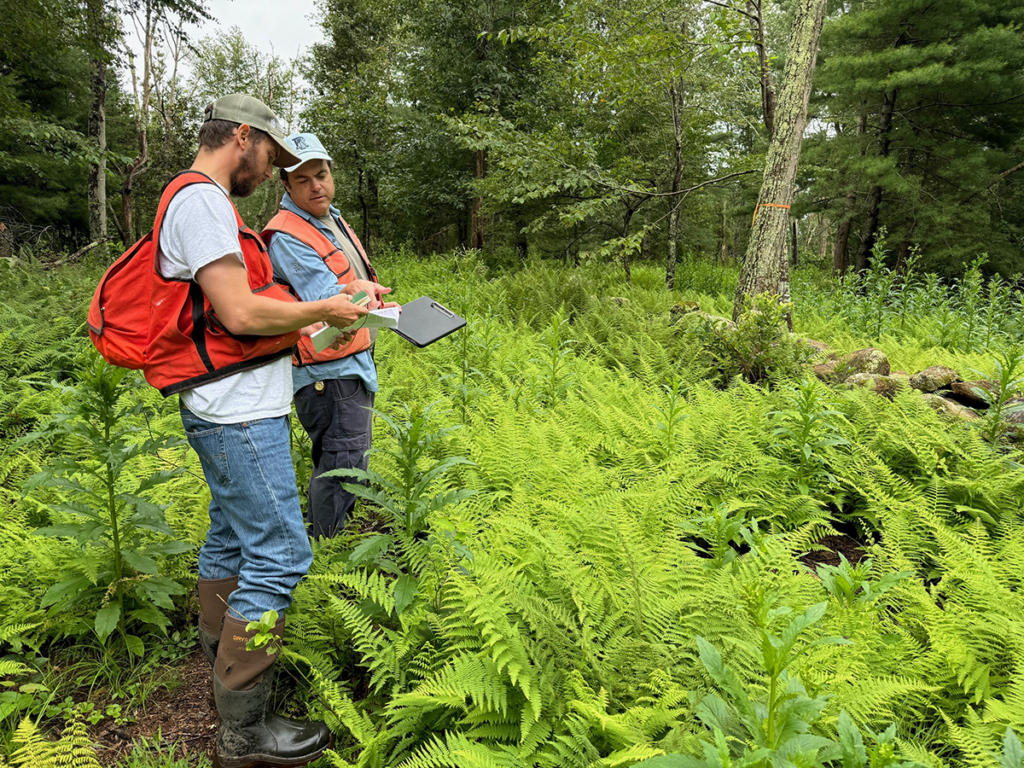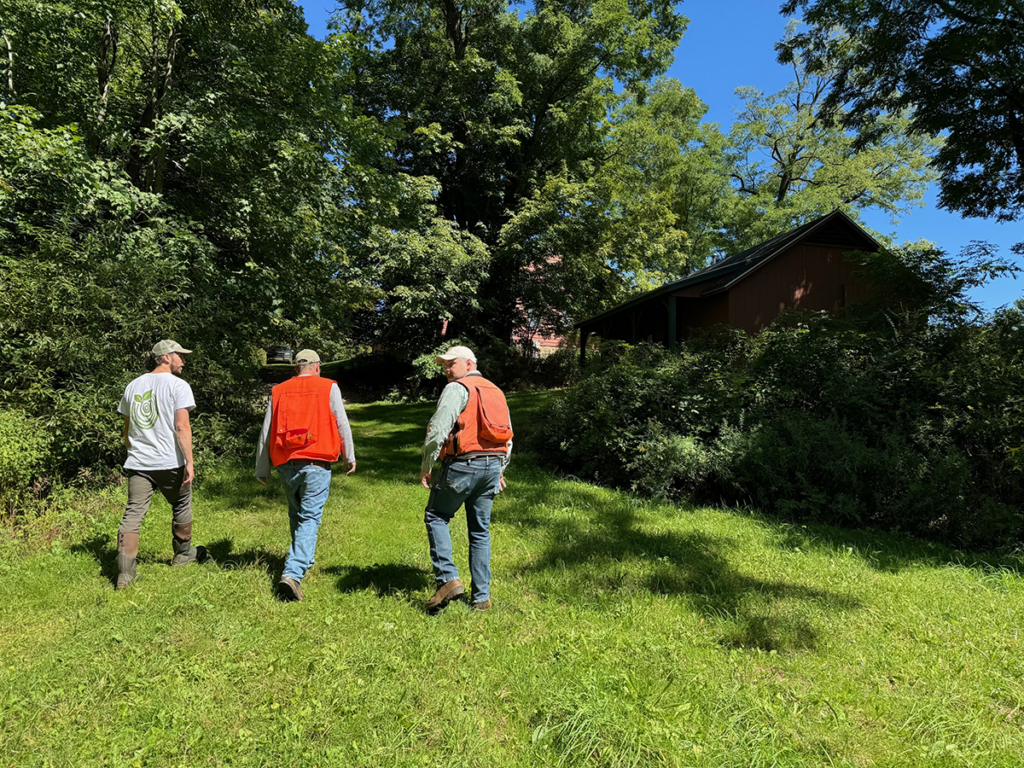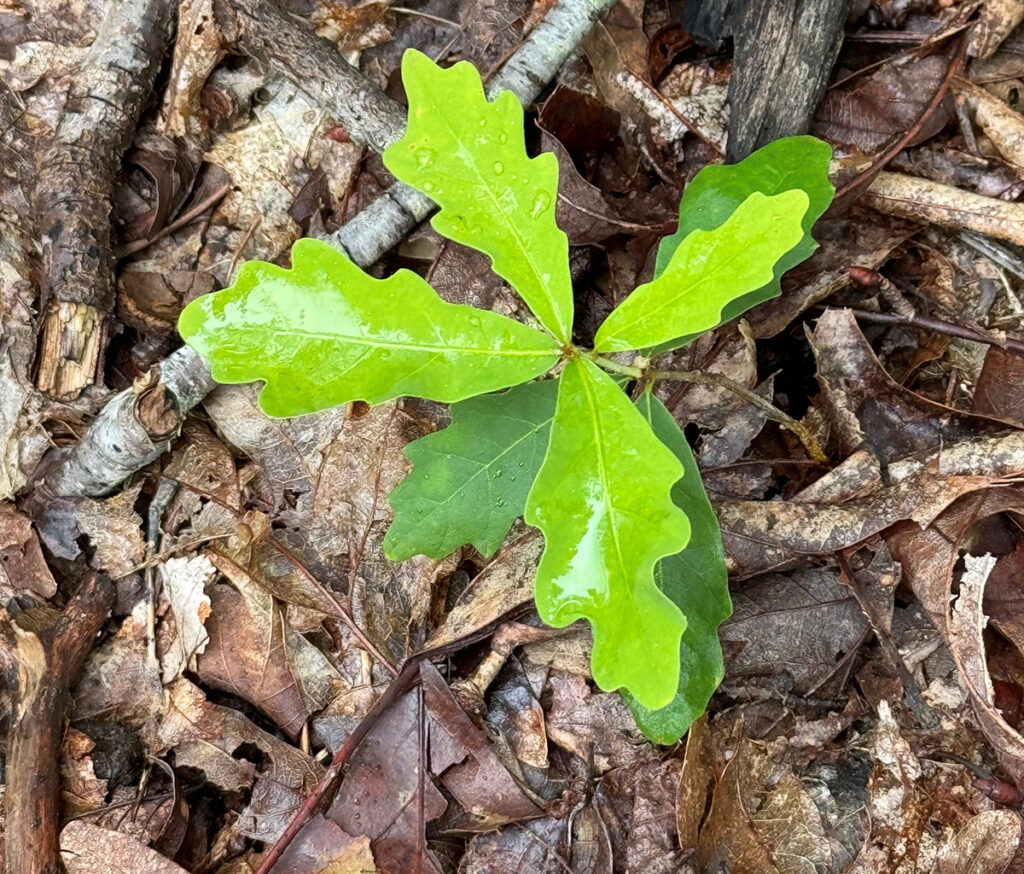Partnerships for Climate-Smart Commodities 2024 Year-End Update
Highlights of the exciting work underway through NEFF’s New England…

Woodland owners in Connecticut, Rhode Island and Massachusetts can now apply for funding through New England Forestry Foundation’s new Grow Resilient Oak-Hickory (GROH) Forests program to care for the long-term, climate-resilient health of their forests. The program is part of New England Forestry Foundation’s USDA-funded Climate-Smart Commodities project.
“As our forests experience more disturbances from a rapidly changing climate, this exciting new program provides southern New England woodland owners with the tools and information they need to help their forests adapt to climate change and related threats like drought,” said Ryan Owens, New England Forestry Foundation (NEFF) Executive Director. “The program will also work with landowners to produce carbon-storing, sustainable wood products using forestry practices that prioritize forest health.”
The GROH Forests program is designed to help woodland owners understand how their forested property is vulnerable to climate change, and help pay for eligible sustainable-forestry practices intended to keep woodlands healthy, productive and better able to bounce back from pests, disease and other disturbances made worse by a changing climate. The program will also help landowners grow carbon-storing, high quality, long-lived timber products in a climate-secure way to meet the northeast’s need for ecologically sourced wood.

Hayden Stebbins, NEFF’s Southern New England Program Forester, joins Christopher Riely, CF, Forestry Specialist and Research Associate at the University of Rhode Island, to tour a forestry demonstration and study site at Hillsdale Preserve in Richmond, Rhode Island. Photo by Lisa Hayden
GROH Forests’ impact extends to financial and community benefits. It supports the people and businesses that own, manage and depend on the region’s forestlands and forest sector. NEFF’s Climate-Smart Commodities work integrates climate resilience, carbon storage and the ecological health of our forests, while continuing to provide essential wood products and critical ecosystem services like clean air, clean water and diverse wildlife habitat.
NEFF is excited to announce that the 6,300-acre Great Mountain Forest (GMF) in Norfolk, CT, will enroll some of its lands in GROH Forests as the program’s first participant, and will serve as a flagship education, demonstration, and research site for the program. GMF is a nonprofit dedicated to helping communities derive more benefits from their forests while promoting biodiversity and ecosystem resilience.
The Northern Institute of Applied Climate Science has developed a climate-smart forestry curriculum NEFF has paired with in-the-field trainings thus far held at Great Mountain Forest and Yale-Myers Forest. These trainings give foresters in-person experience with the types of stands the GROH Forests program aims to manage, and examples of what these stands should look like post-treatment.
GMF co-hosted the first of the GROH Forests’ small-group forester training programs in October, featuring a day-long workshop and field training. NEFF and GMF are planning a series of educational forums in 2025-2026 including woods walks and workshops for family forest owners.

A forester training at Great Mountain Forest, photo by Lisa Hayden
Woodland owners can visit NEFF’s website at newenglandforestry.org/smaller-acreage-enrollment to download an application, and to learn more about the program and whether its practices are a fit for their land and goals.
In Massachusetts and Connecticut, parcels of at least 25 forested acres are eligible; in Rhode Island, which has smaller average parcel sizes, ownerships of at least 10 forested acres are eligible. Woodland owners without an active management plan will be referred to a licensed forester, and work with the forester to create one.
Through its Climate-Smart Commodities project, NEFF now offers climate-smart forestry incentive programs for forest landowners across all six New England states, including on large commercial lands, smaller-acreage woodlands and Tribal Nations woodlands. The GROH Forests program for southern New England complements NEFF’s work with American Forest Foundation (AFF) and the Family Forest Carbon Program to enroll smaller-acreage landowners in Maine, New Hampshire, Vermont and northwestern Massachusetts.
In turn, the Climate-Smart Commodities project supports NEFF’s 30 Percent Solution, a powerful and holistic approach to climate that combines four forest-based climate change solutions—spreading the use of climate-smart forestry, storing carbon in wood buildings, replacing carbon-intensive steel and concrete, and stopping net loss of forestlands, with both working forests and unharvested ecological reserves a conservation priority. NEFF researchers have determined that implementing it at a regional scale would provide nearly one-third—or 646 million metric tons of CO2e—of the emissions reductions New England needs by 2050.

An oak seedling in Rhode Island, photo by Lisa Hayden